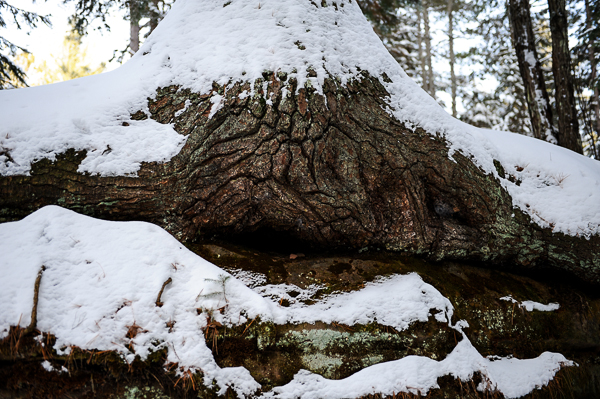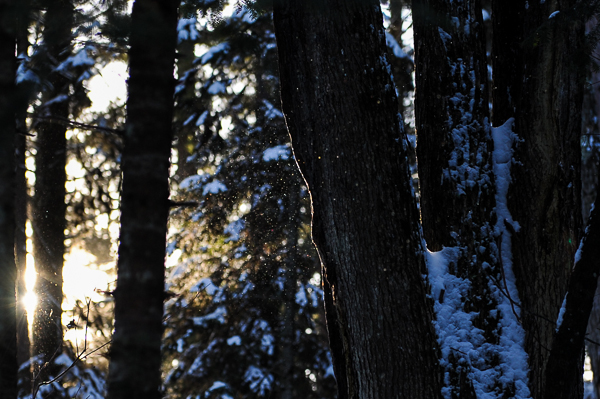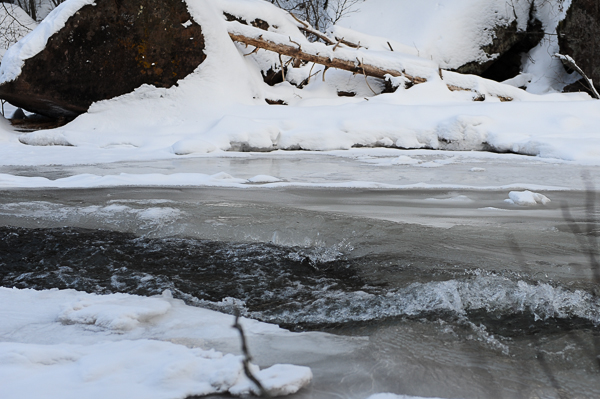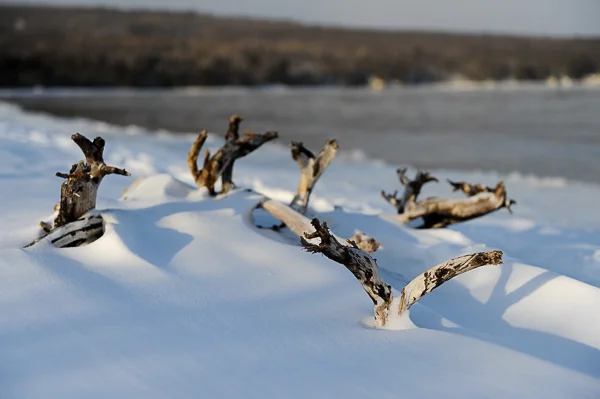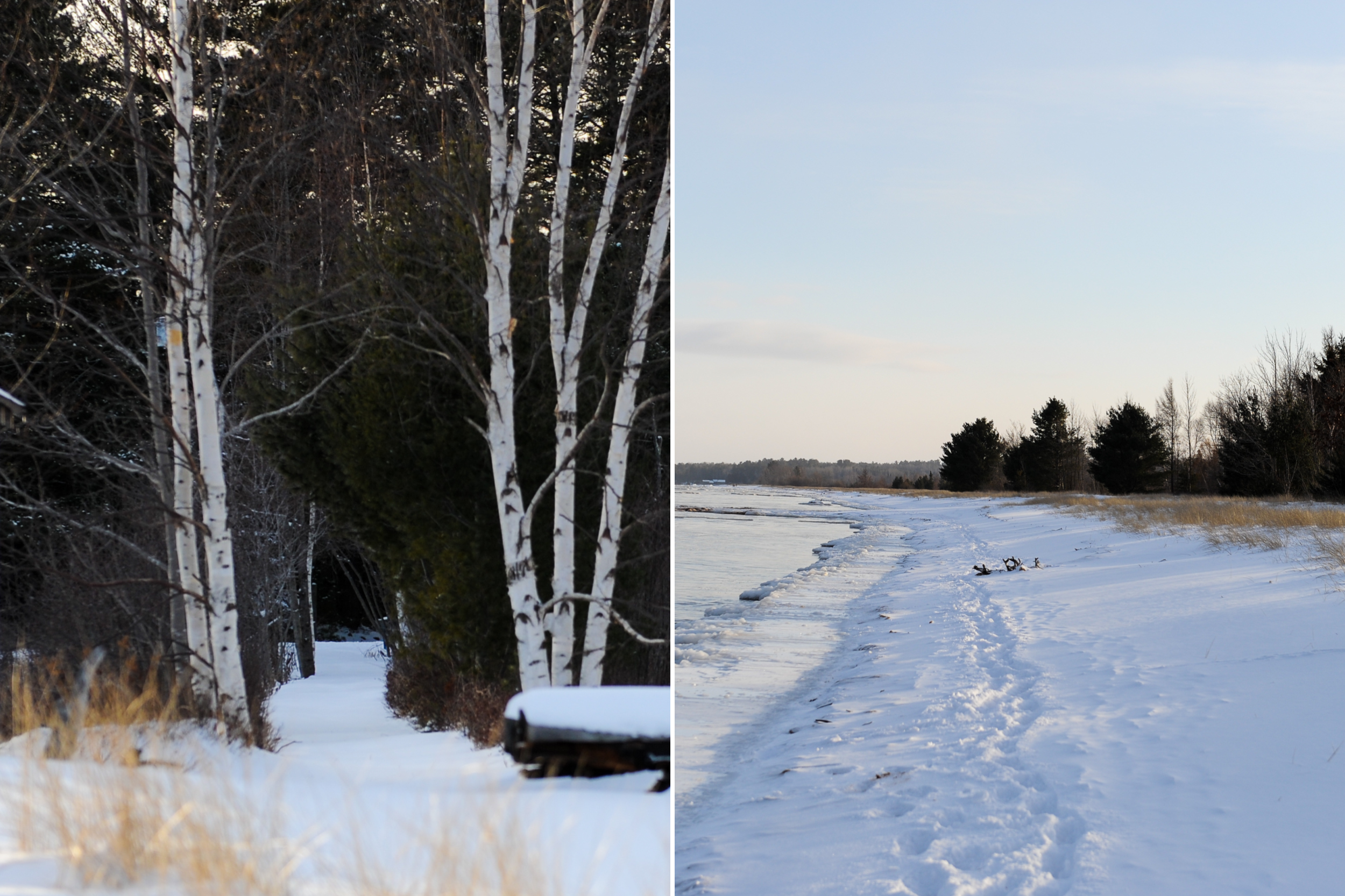Sadie has volleyball practice at Marshall School and it’s good to be back in Duluth again (talk to me in March, the thrill most likely will have worn off).
Read MoreCookery Maven Blog
An Iceberg Expedition on May 17th
It's the middle of May— the snow is gone, I've unearthed my sandals from the basement, our windows are free of their plastic wrap, and the Karl is back on the water. Summer is on its way and come hell or high water, I'm forging ahead....right into a Lake dotted with icebergs on May 17th.
Read MoreOur Morning At The Ice Caves
Jack leaves tomorrow— back to Madison to complete the second half of his freshman year. I wanted to do something epic to recognize his leave-taking; some collection of experiences he can bring to Madison, package away in his dorm room and pull out when he needs to remember why Lake Superior will always be home.
Read MoreCatching Sea Smoke
My first experience with sea smoke came in a bottle of Pinot Noir from California. While it's an elegant, earthy Pinot— the real deal over Lake Superior is far more impressive.
Read MoreThe Last Places Are Worth Saving
“The good life of any river may depend on the perception of its music; and the preservation of some music to perceive.” Aldo Leopold
'All ethics so far evolved rest upon a single premise: that the individual is a member of a community of interdependent parts. His instincts prompt him to compete for his place in that community, but his ethics prompt him also to co-operate (perhaps in order that there may be a place to compete for).
The land ethic simply enlarges the boundaries of the community to include soils, waters, plants, and animals, or collectively: the land.
This sounds simple: do we not already sing our love for and obligation to the land of the free and the home of the brave? Yes, but just what and whom do we love? Certainly not the soil, which we are sending helter-skelter downriver. Certainly not the waters, which we assume have no function except to turn turbines, float barges, and carry off sewage. Certainly not the plants, of which we exterminate whole communities without batting an eye. Certainly not the animals, of which we have already extirpated many of the largest and most beautiful species. A land ethic of course cannot prevent the alteration, management, and use of these 'resources,' but it does affirm their right to continued existence, and, at least in spots, their continued existence in a natural state.' Aldo Leopold A Sand County Almanac
I'm lucky to live in one of the world's 'last places', a place still relatively untouched by expansion and extraction. While a stand of old growth pines are a rarity due to logging and fisheries in Bayfield aren't shipping 12,000 barrels of whitefish and trout a year like they were in 1881; Lake Superior is still crystal clear and cold, white and red pines poke their heads up over the forest canopy and I can see every single star in the night sky. These are worth saving.
There are complicated issues facing Lake Superior— GTac, a company based in Florida, wants to build an open-pit (4.5 miles long, 1.5 miles wide and up 1,000 feet deep) taconite mine in the Penokee Mountains, six miles from the Bad River Reservation and Lake Superior. Twenty three creeks, streams and rivers flow directly into the Bad River Reservation, specifically the Kakagon Slough, and then into Lake Superior from the mine site. Sulfides, a by-product of mining, will flow directly downstream— decimating the wild rice beds, killing fish and polluting 10 percent of the world's fresh water. Sounds like a no-brainer— who would want to pollute one of the most beautiful places on Earth? The complications arise from the real and pressing problem of poverty and unemployment. A promise (valid or not) of 700 'good paying' jobs are a Siren's song to people who are looking for relief from financial distress. However, the question remains— what is our legacy to the people, animals and trees who come after us?
'For unnumbered centuries of human history the wilderness has given way. The priority of industry has become dogma. Are we as yet sufficiently enlightened to realize that we must now challenge that dogma, or do without our wilderness? Do we realize that industry, which has been our good servant, might make a poor master? Let no man expect that one lone government bureau is able—even tho it be willing—to thrash out this question alone.
....Our remnants of wilderness will yield bigger values to the nation's character and health than they will to its pocketbook, and to destroy them will be to admit that the latter are the only values that interest us.' Aldo Leopold 'A Plea For Wilderness Hunting Grounds' The Best of Outdoor Life: One Hundred Years of Classic Stories
When I was 8 or 9, my Mom, Bridget, Tom and I took an Amtrak train to Duluth, it was a big deal. We met my Dad at the Radisson and had dinner in the rotating restaurant on the top floor. As the harbor came into view, I remember seeing the lake stretch out for miles and was awestruck. That dinner in a slowly spinning restaurant was the start of my lifelong love affair with Lake Superior, a Midwestern inland ocean.
The lake has been a backdrop to so many of our family stories: Ted asked me to marry him on the Moccasin Mike Road beach, I slept in a tent for the first time on that same beach, Jack had his first pickle on the patio at Sir Ben's, a canoe ride north of Two Harbors inspired our purchase of Isle of Skye, we saw our first moose in Washington Harbor on Isle Royale, we saw caribou in the Slate Islands, the kids jumped off cliffs on Devil's Island, we walked up to the top of Mt Ashwabay on my birthday, I swam with Guinness, our Newfie, in Julian Bay, spent countless days on the beaches of Long Island, driving on the ice road, with all the windows down, to Madeline Island, my first sauna on Spain Island near Loon Harbor, the list literally goes on and on. At the end of my time here, I'll leave behind my children and the memories we've made together. Legacy is all we have and our family legacy is forever intertwined with Lake Superior and her shores.
I met literally hundreds of people at Good Thyme and over the course of those evenings, I realized three things: people crave a sense of belonging, they want to create memories and part of the magic of their visit up here was the lake's steadfast constancy. I heard countless stories about rituals and legacies: families who came up to the same cabin every year, beach glass collected to take home, epic rock skipping contests, wedding and subsequent anniversary dinners spent at the restaurant, the first ferry ride to Madeline Island, kayaking in the sea caves, again, the list goes on and on. I'm not unique in my deep affection for this place; there are a million ways to fall in love with Lake Superior and I've seen it in the eyes of people when they shared stories of 'their' lake.
'If in a city we had six vacant lots available to the youngsters of a certain neighborhood for playing ball, it might be "development" to build houses on the first, and the second, and the third, and the fourth, and even the fifth, but when we build houses on the last one, we forget what houses are for. The sixth house would not be development at all, but rather it would be mere short-sighted stupidity. "Development" is like Shakespeare's virtue, "which grown into a pleurisy, dies of its own too-much."
In objection to the dedication of the Gila as a permanent wilderness hunting ground, it has been truly said that a part of the area which would be "locked up" bears valuable stands of timber. I admit that this is true. Likewise, might our sixth lot be a corner lot, and hence very valuable for a grocery store or a filling station. I still insist it is the last lot for a needed playground, and this being the case, I am not interested in grocery stores or filling stations, of which we have a fair to middling supply elsewhere.' Aldo Leopold 'A Plea For Wilderness Hunting Grounds' The Best of Outdoor Life: One Hundred Years of Classic Stories
Extraction is quick and dirty— there is lots of action, fuss and bluster, money is promised and delivered (hopefully) but extractions, at their core, are not endless. Eventually, we'll run out of taconite, the action and money leaves to find another mistress and we're left with a shadow of the beauty and majesty that once was a blessed and integral part of our daily life. At some point, we have to decide the resources we have so generously been given are not endless and deserve our utmost respect and thanks. If I had a wish for my children and grandchildren, it would be they can see and feel the lake that has provided solace, joy and deep peace to their mother and grandmother. I would wish they could continue to add to the tapestry Ted and I started when they were born and pass on a legacy of gratitude and stewardship for one of the great wonders of the world.
What does stewardship and sustainability really mean? Is it possible to re-imagine an economy where we have enough and we re-define abundance? Is there any common ground between a neighborhood in Minneapolis creating a sense of community with a garden and a group of people in the Chequamegon Bay creating a sense of community with a movement to protect Lake Superior? Absolutely. As Aldo Leopold said, 'the land ethic simply enlarges the boundaries of the community to include soils, waters, plants, and animals, or collectively: the land'. I don't believe we can function in a sustainable way without practicing good stewardship to the people, animals, land and water where we set down our roots. I believe protecting Lake Superior is a good place to start. I believe we are connected in a myriad of unseen but deeply felt ways and these last places— Lake Superior, the Penokees and the Bad River Watershed are worth saving.
'A thing is right when it tends to preserve the integrity, stability and beauty of the biotic community. It is wrong when it tends otherwise.' Aldo Leopold
And So It Begins
I have to tell you, writing the first blog post of your very own blog is a little mind bending. Where should I start? A funny aside about my food obsessed yellow lab, George? A touching story about taking my two daughters and their friends to Minneapolis for the weekend? A tidbit from our family archive when we took our five kids across Lake Superior, in a boat, to Isle Royale? I opted to keep it short and simple. A first blog post should be a little like cocktail party conversations- a brief overview, a funny anecdote and a promise to get together soon. Here are the players you will get to know over the course of my blogging adventure. Trust me, they are a brilliant bunch of people, critters and places.
 Ted- captain of the ship, leader of the pack and the man with a plan.
Ted- captain of the ship, leader of the pack and the man with a plan.
 Jack (with a bearded Ted): the first-born, snowboarder extraordinaire and a true renaissance man.
Jack (with a bearded Ted): the first-born, snowboarder extraordinaire and a true renaissance man.
 Will: the second son, brilliant photographer and relatively effective dog wrangler.
Will: the second son, brilliant photographer and relatively effective dog wrangler.
 Sadie: the first daughter, math whiz and empress of the universe.
Sadie: the first daughter, math whiz and empress of the universe.
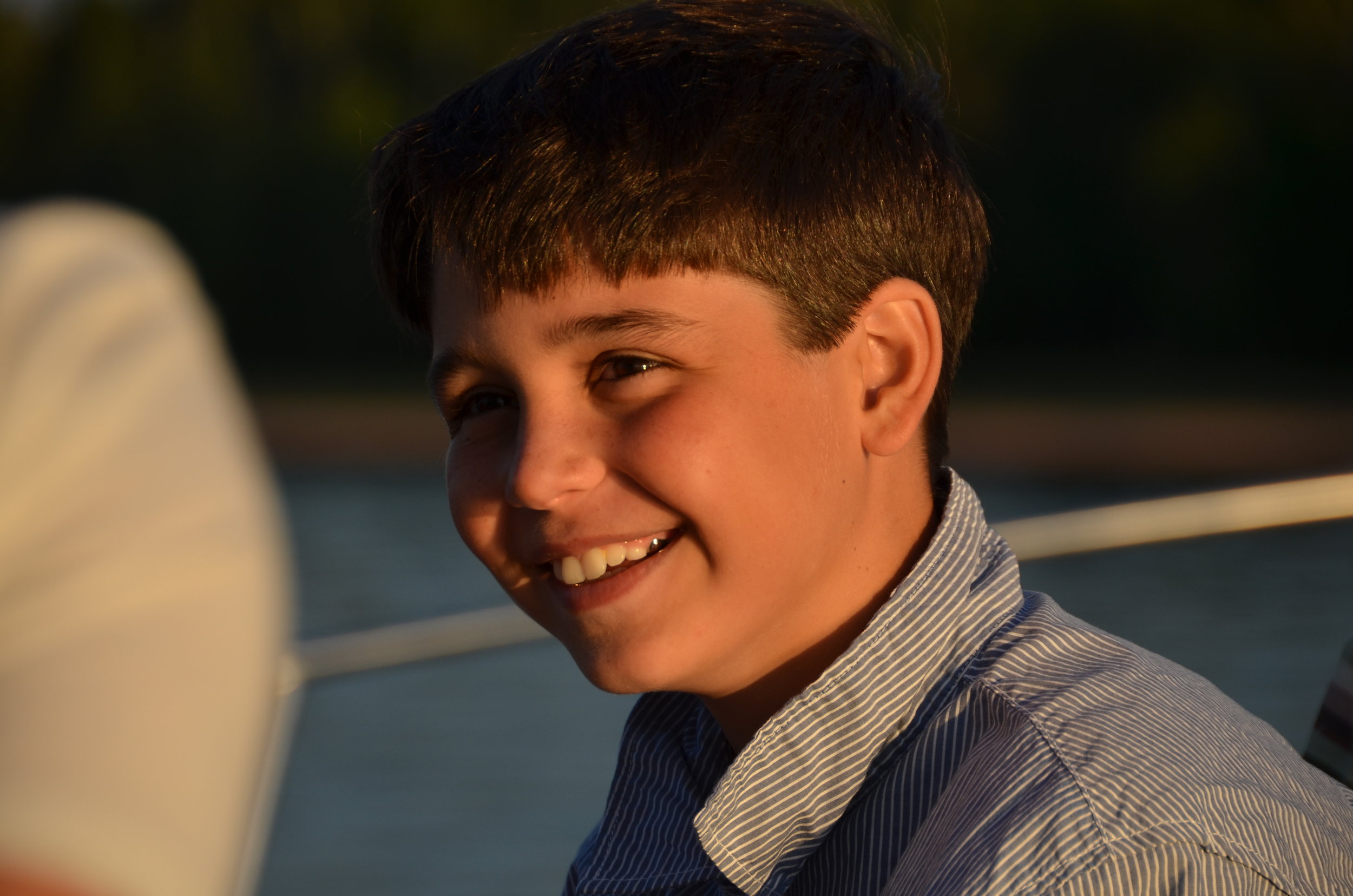 Charlie: the third son, voracious reader and master of the ski hill.
Charlie: the third son, voracious reader and master of the ski hill.
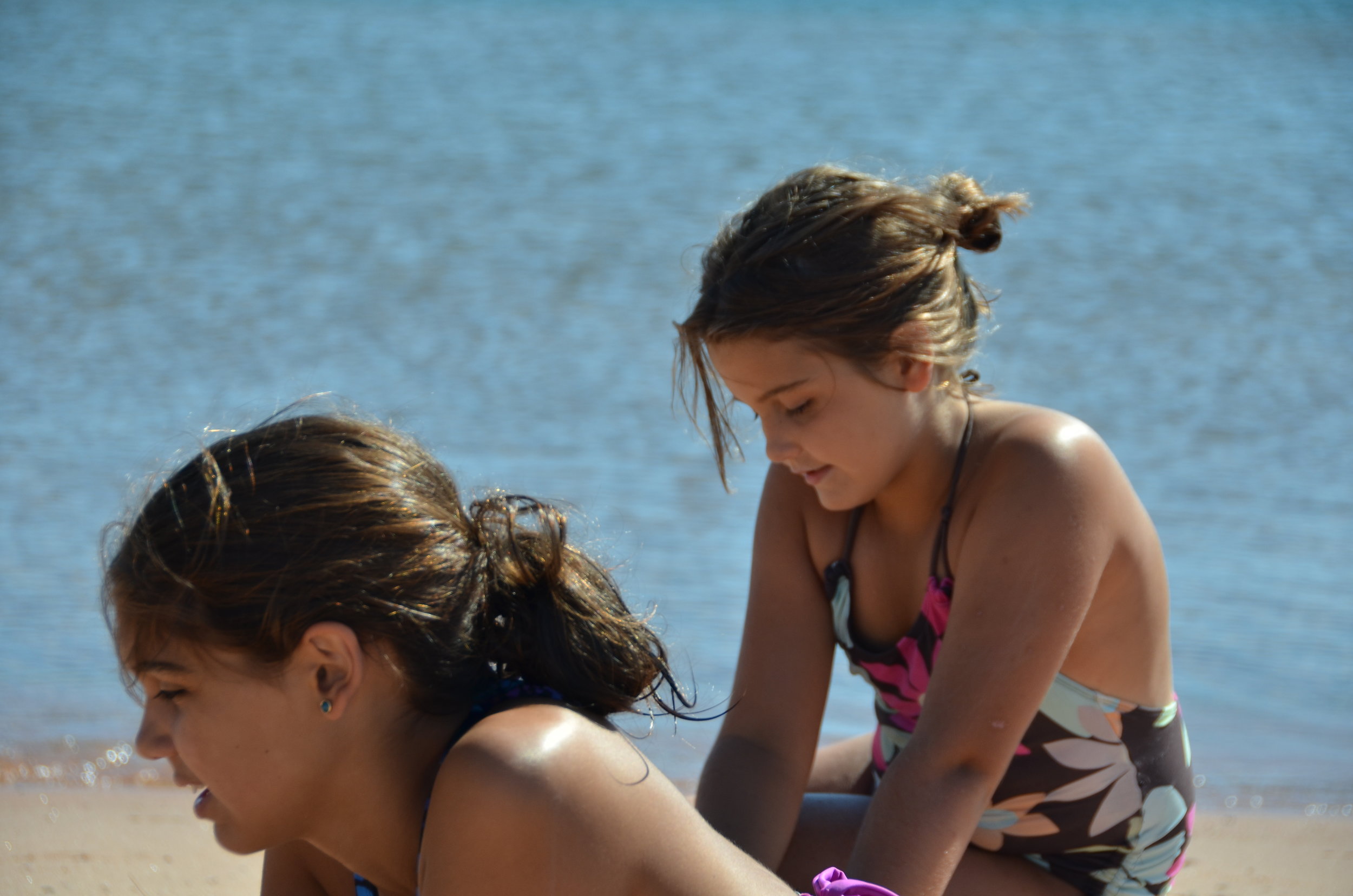 Meghan: the youngest child, strong swimmer and beautiful free spirit.
Meghan: the youngest child, strong swimmer and beautiful free spirit.
 George: food and Chuck-It obsessed.
George: food and Chuck-It obsessed.
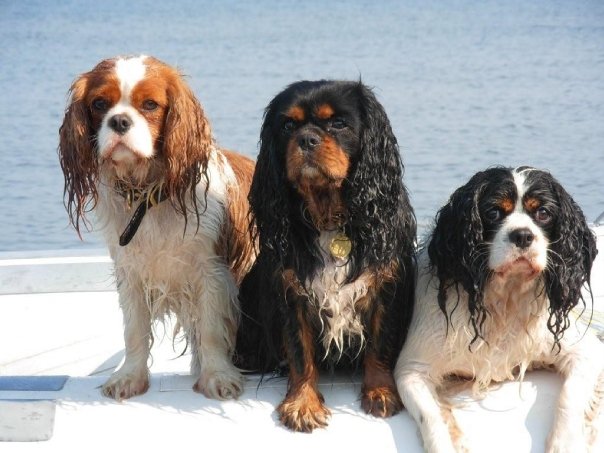 Henry, Gus and Seamus: the Three Stooges.
Henry, Gus and Seamus: the Three Stooges.
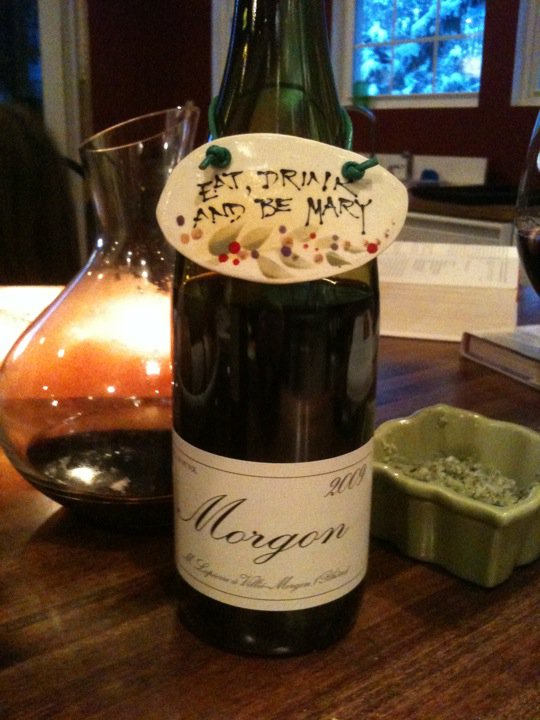 Wine: "Wine is bottled poetry." Robert Louis Stevenson
Wine: "Wine is bottled poetry." Robert Louis Stevenson
 Kitchen: time spent in pursuit of a beautiful meal.
Kitchen: time spent in pursuit of a beautiful meal.
 Garden: quiet, restful and as close to meditating as I'll ever get.
Garden: quiet, restful and as close to meditating as I'll ever get.
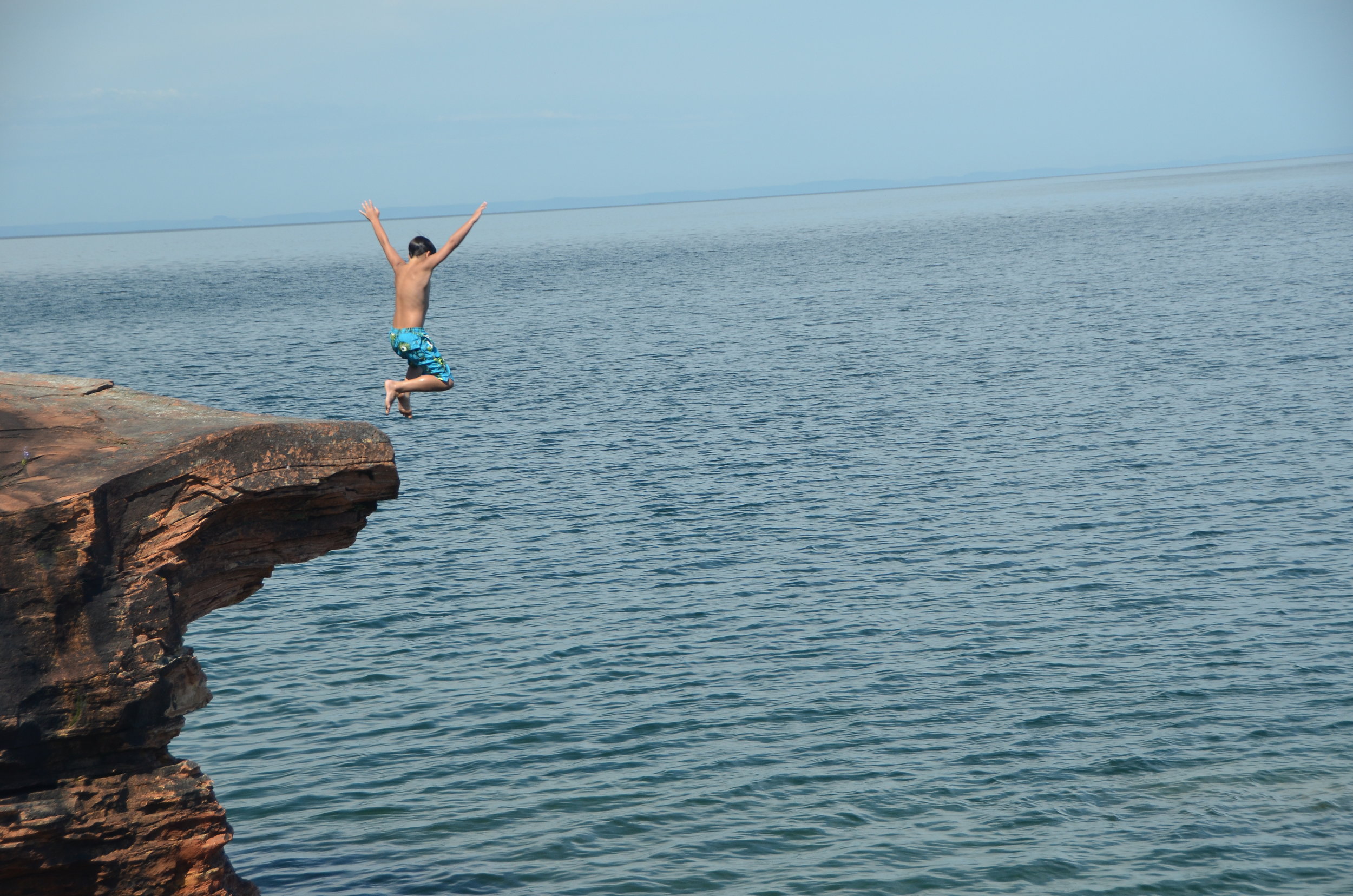 Lake Superior: beautiful, fierce and sacred.
Lake Superior: beautiful, fierce and sacred.
 Bayfield: Northern Wisconsin, no stop lights and a stellar cast of characters.
Bayfield: Northern Wisconsin, no stop lights and a stellar cast of characters.



